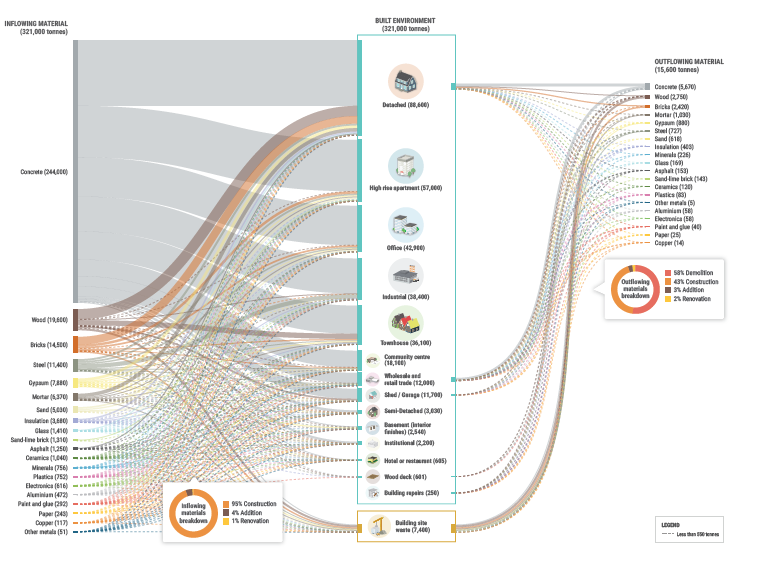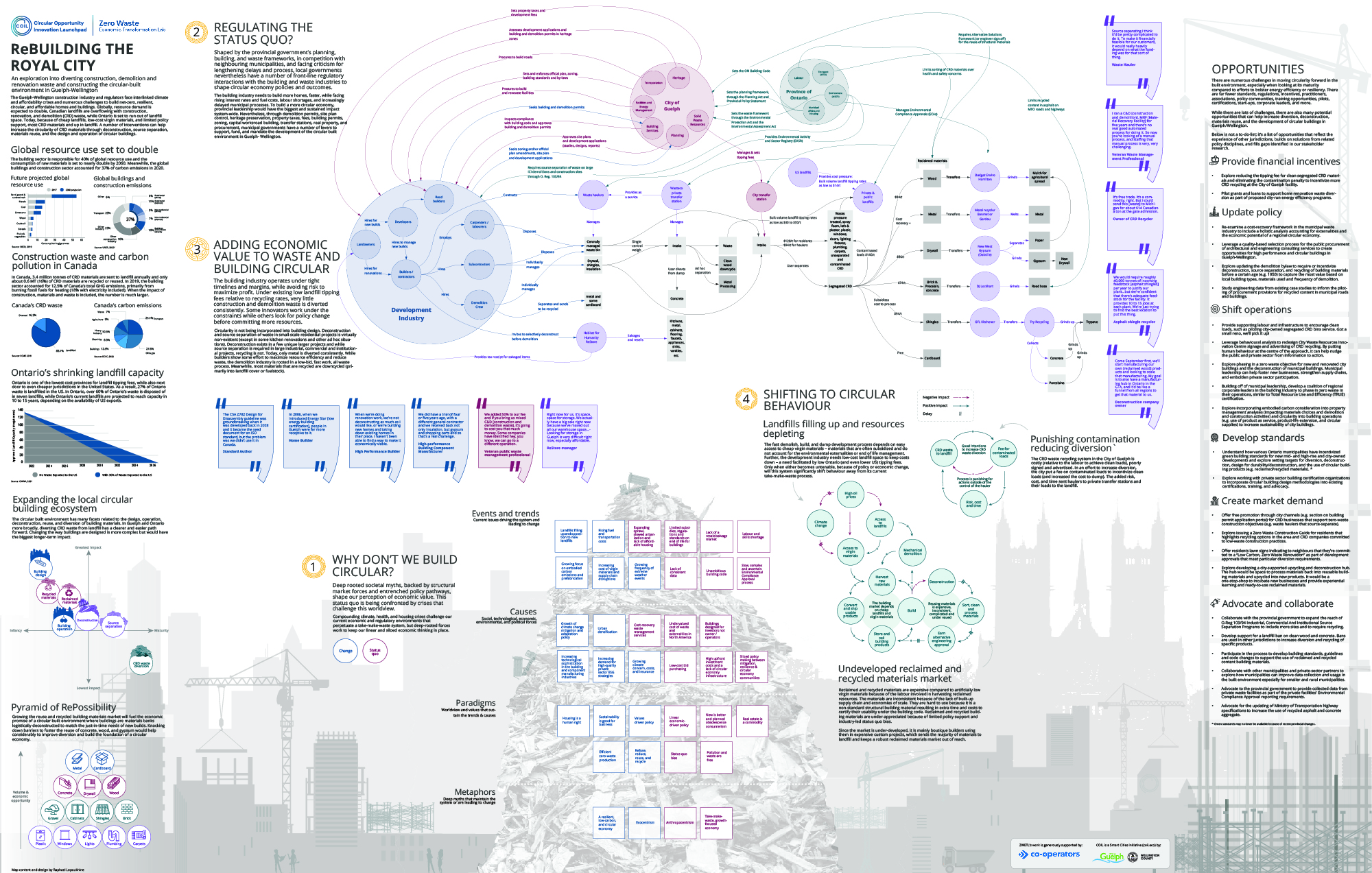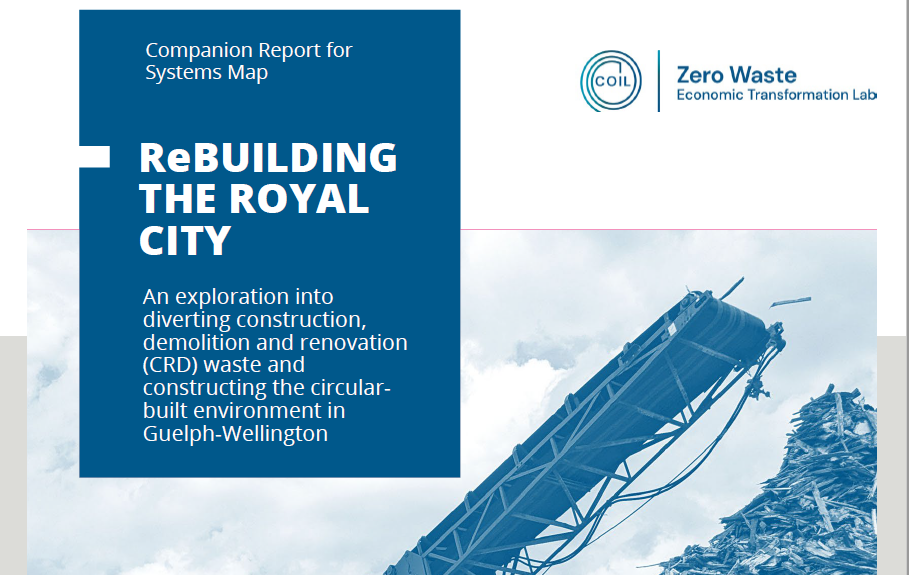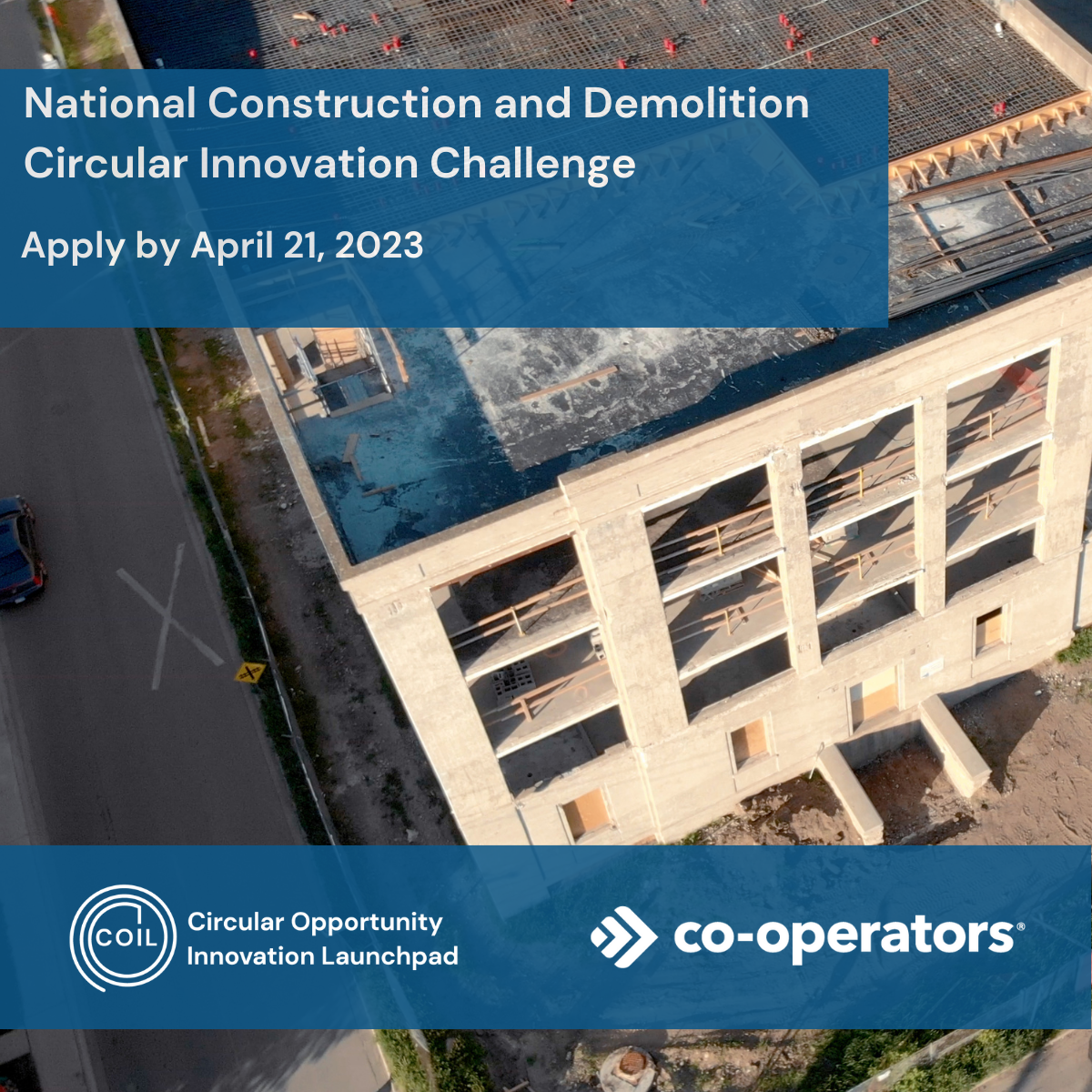COIL Zero Waste Economic Transformation Lab
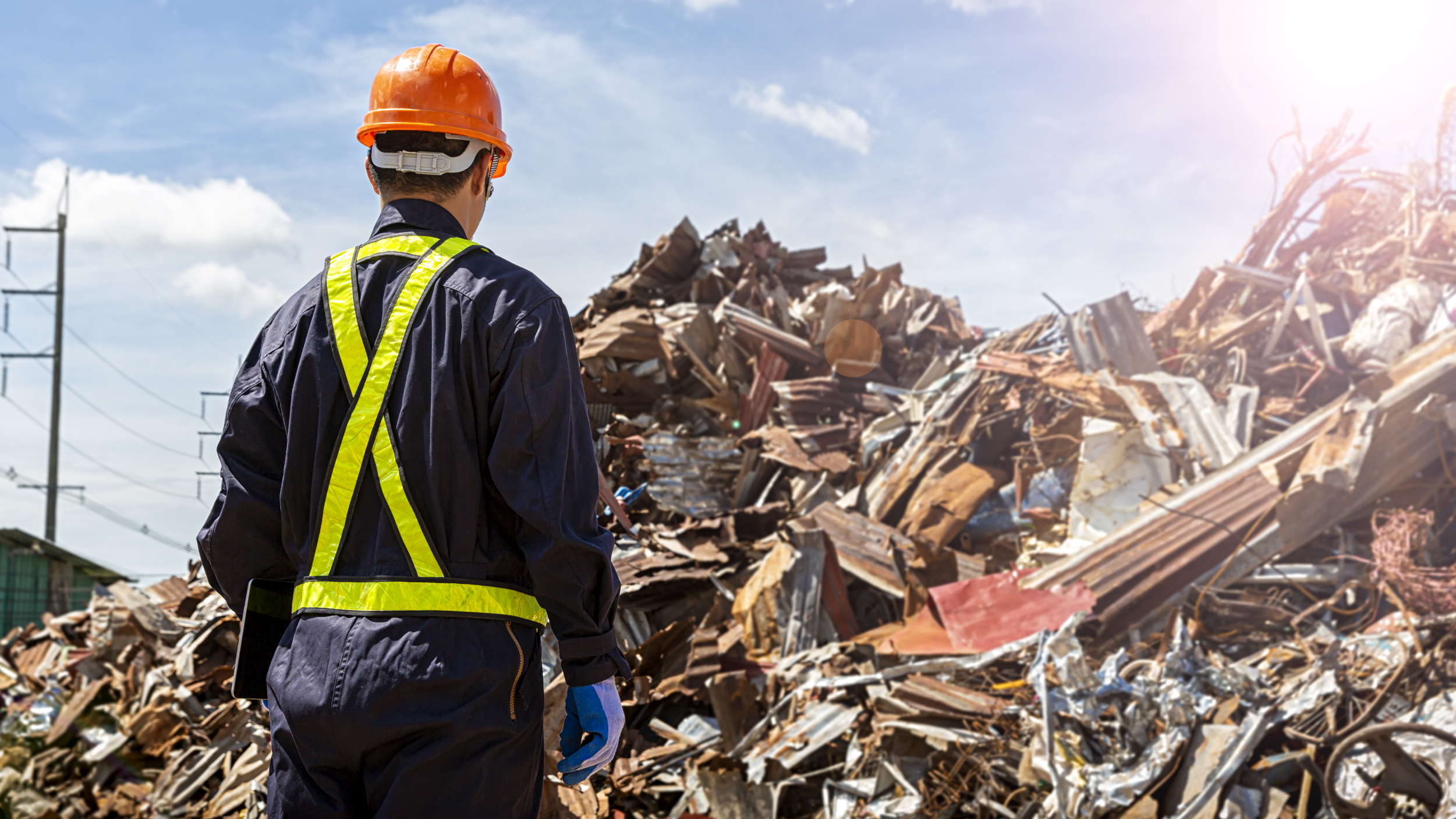

Founding supporter:

Forty-five per cent of global carbon emissions are generated when we manufacture products. Redesigning systems to recycle and extend the life of materials is an essential part of fighting climate change.
The COIL Zero Waste Economic Transformation Lab will expand COIL’s work beyond food. It will apply place-based circular economy strategies to develop and test new opportunities to reduce or redirect waste from sectors across the economy, starting with construction, renovation and demolition (CRD) materials.
As the Lab’s founding corporate supporter, Co-operators is standing behind its commitment to embedding sustainability into all areas of its business. Its investment in the Lab and its first project will help to sustainably divert materials away from landfills and keep them in the local economy.
Understanding CRD Waste Flows in Guelph/Wellington
Understanding the quantities of waste generated from construction, renovation and demolition within Guelph/Wellington was a key goal of the Zero Waste Economic Transformation Lab. Therefore, researchers from Dillon Consulting, Metabolic and Summit72 reviewed the available data from the waste and construction industries as well as data from the City and County building departments and claims from, our funding sponsor, The Co-operators.
This data was used with Metabolic’s Urban Mining Model to understand the amount of materials entering Guelph/Wellington from new CRD materials leaving Guelph/Wellington from construction site waste, demolitions, and renovations.
The Material Flow Analysis figure shows the inflow and outflow of materials as well as the various building types that are constructed, renovated or demolished. The full report is available for download below.
ReBuilding the Royal City
We wanted to understand the societal, financial, and policy reasons why waste is landfilled or recycled within the construction industry. Raphael Lopoukhine completed a research project based on literature review and stakeholder interviews to understand the conditions within Guelph/Wellington. The resulting work is a systems map and companion report which details the various drivers that impact how construction waste is managed within Guelph/Wellington. The full systems map and companion report are available for download below.
National Construction & Demolition Circular Innovation Challenge
COIL’s national network, in collaboration with Vancouver Economic Commission and Halifax Partnership, launched its first ever national challenge in April 2023.
Read more about about the program and four finalists’ projects on the National Challenge page.
CRD Source Separation Pilot Starting in 2023
CRD materials, such as concrete, drywall, cabinetry and lumber, make up approximately one third of the waste Canadians send to landfills every year. If properly separated, most of these materials can be reused or recycled.
However, most construction waste is currently placed in a single dumpster, meaning virtually none of these materials are reclaimed or recycled.
The Zero Waste Economic Transformation Lab is piloting a CRD Source Separation pilot in collaboration with the Guelph-Wellington Smart Cities Office and the Guelph’s Solid Waste Resources department. We are working with two innovators – AET and The Better Bin Company – to pilot their new source separation solution on local construction sites.
For more information contact [email protected]
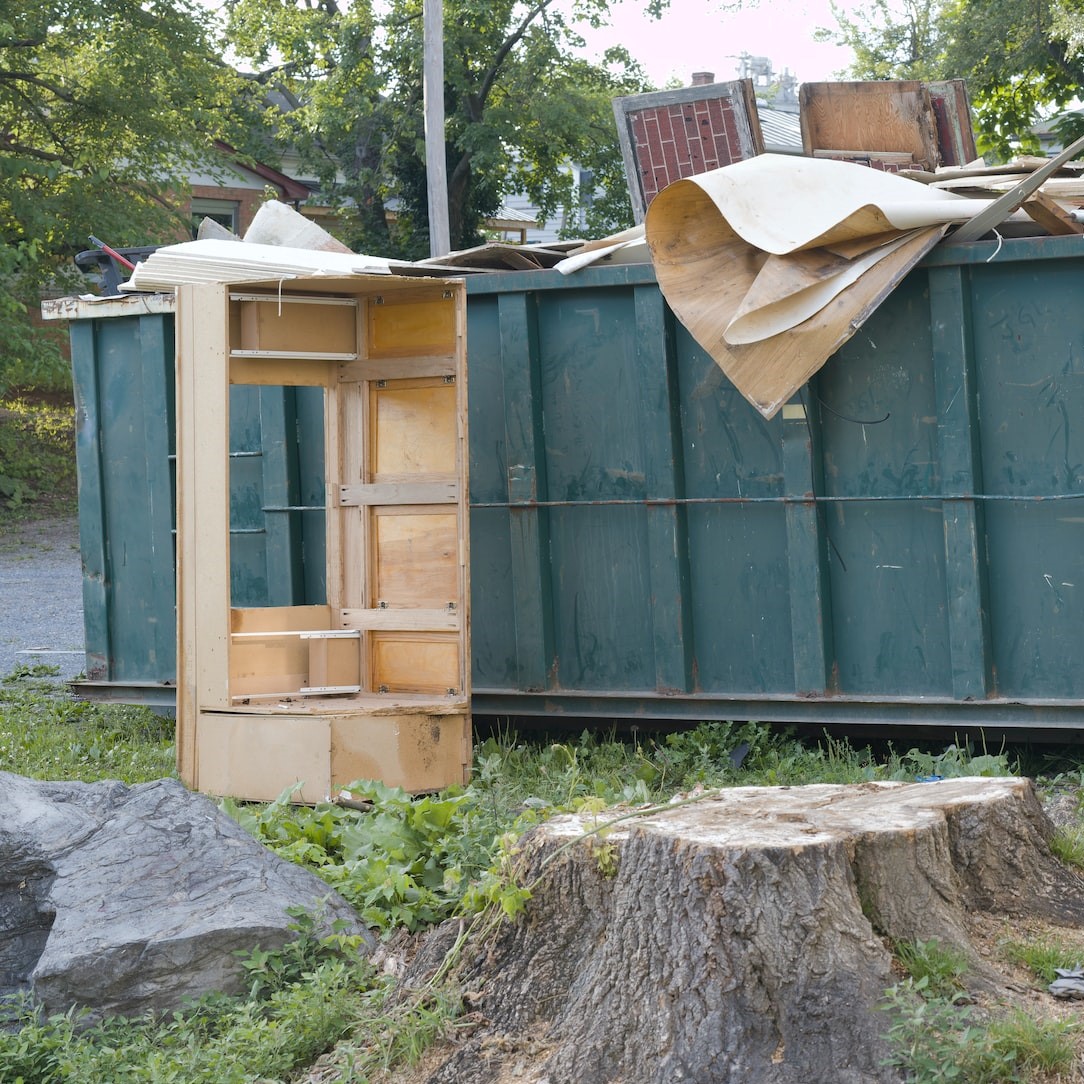
Calling all Construction, Renovation and Demolition (CRD) Stakeholders
We’re looking to develop and test system changes that will create a more circular CRD industry – starting in Guelph and Wellington.
This needs to be a whole of industry approach.
We’re looking for collaborators from across the construction and demolition sectors – developers, contractors, recyclers, industry groups, material-recovery operators, entrepreneurs, researchers and more who want to get involved.
Get in touch with our team!

